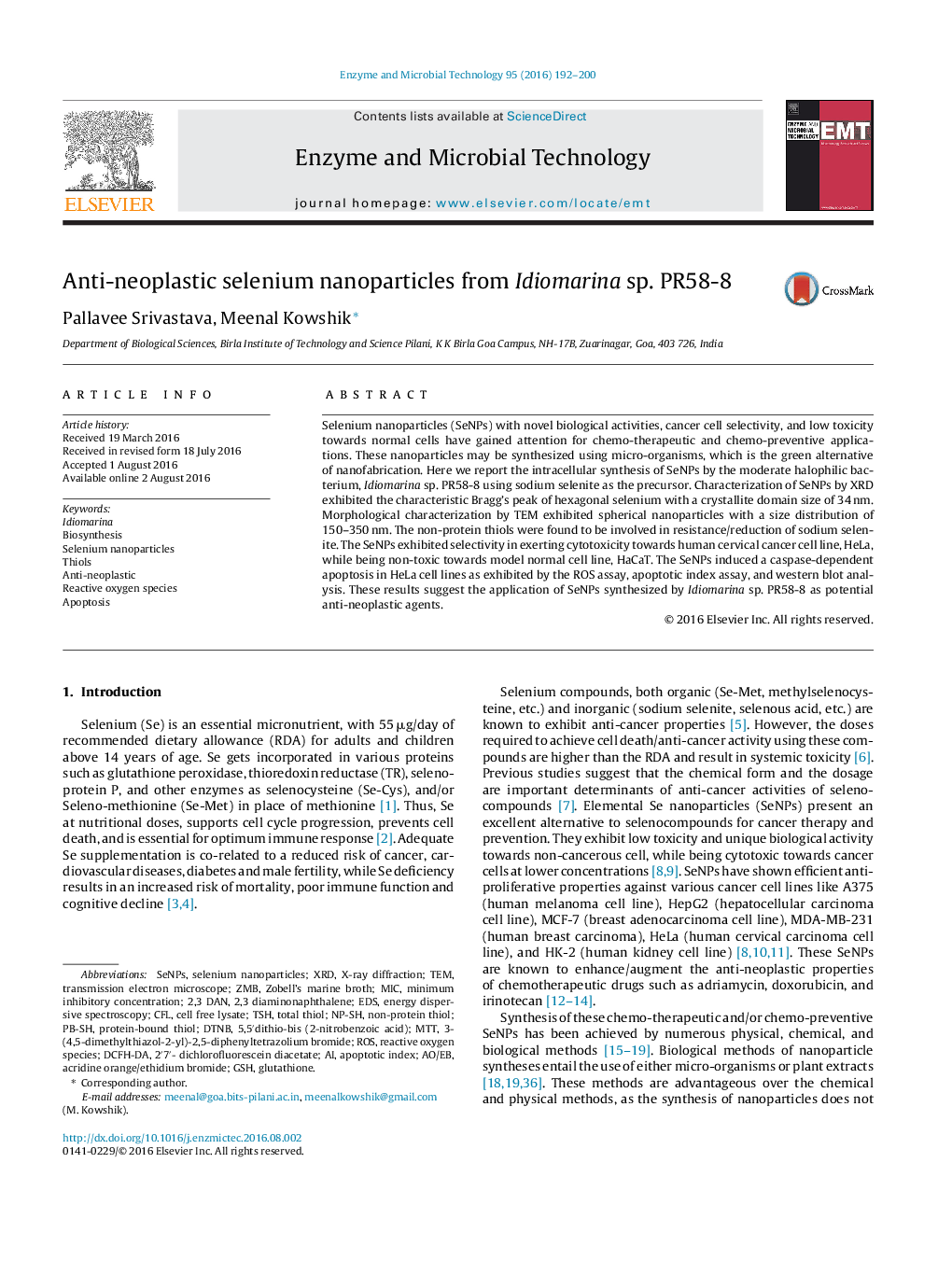| Article ID | Journal | Published Year | Pages | File Type |
|---|---|---|---|---|
| 4752813 | Enzyme and Microbial Technology | 2016 | 9 Pages |
â¢Intracellular SeNPs synthesized by Idiomarina sp. PR58-8.â¢Spherical SeNPs with hexagonal crystal lattice observed by TEM and XRD analysis.â¢Non-protein thiols confer selenite resistance to this isolate.â¢Apoptosis induction in HeLa cell line by SeNPs responsible for their anti-neoplastic properties.
Selenium nanoparticles (SeNPs) with novel biological activities, cancer cell selectivity, and low toxicity towards normal cells have gained attention for chemo-therapeutic and chemo-preventive applications. These nanoparticles may be synthesized using micro-organisms, which is the green alternative of nanofabrication. Here we report the intracellular synthesis of SeNPs by the moderate halophilic bacterium, Idiomarina sp. PR58-8 using sodium selenite as the precursor. Characterization of SeNPs by XRD exhibited the characteristic Bragg's peak of hexagonal selenium with a crystallite domain size of 34Â nm. Morphological characterization by TEM exhibited spherical nanoparticles with a size distribution of 150-350Â nm. The non-protein thiols were found to be involved in resistance/reduction of sodium selenite. The SeNPs exhibited selectivity in exerting cytotoxicity towards human cervical cancer cell line, HeLa, while being non-toxic towards model normal cell line, HaCaT. The SeNPs induced a caspase-dependent apoptosis in HeLa cell lines as exhibited by the ROS assay, apoptotic index assay, and western blot analysis. These results suggest the application of SeNPs synthesized by Idiomarina sp. PR58-8 as potential anti-neoplastic agents.
